Jen Hatmaker is like no other preacher’s daughter or pastor’s wife you have ever met.
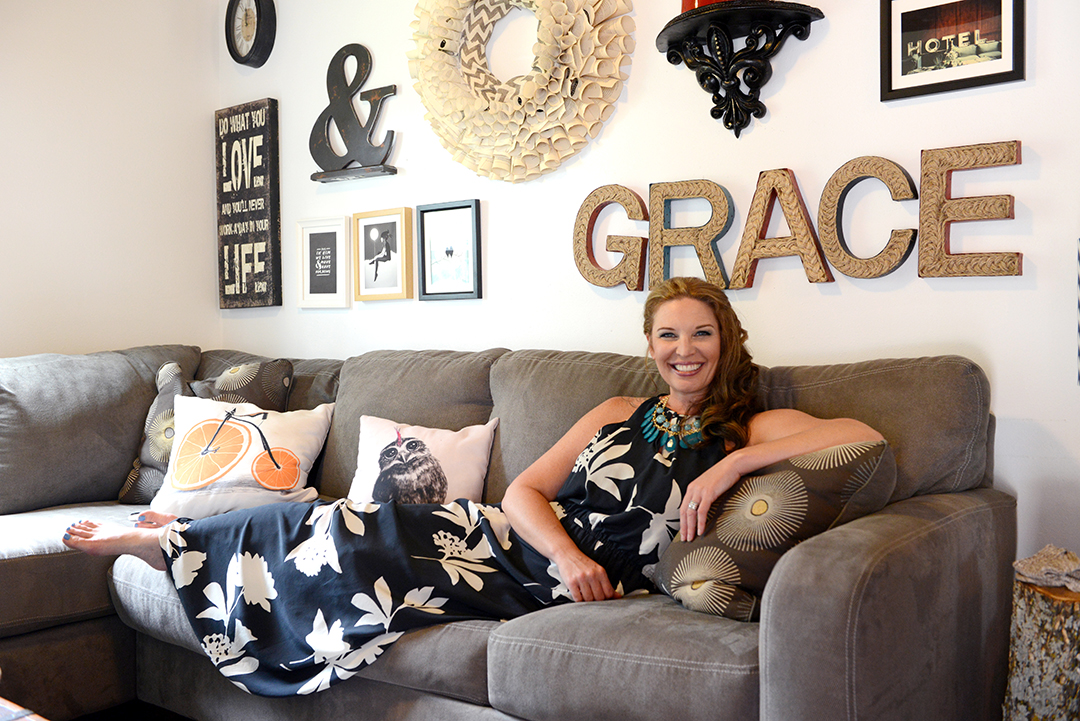 I will admit that I was slightly anxious about meeting Jen Hatmaker. After all, I had done my research and she seemed like a superwoman. A best-selling author, motivational speaker, blogger with hundreds of thousands of followers and an HGTV star, Hatmaker was accomplishing all this while raising five children and partnering with husband Brandon to launch Austin New Church and serve not only our community, but the world at large. In a world in which public figures are often hesitant to share their personal beliefs, Hatmaker bucks conventionality and is not afraid to often say, “I love Jesus. I really do,” with a smile.
I will admit that I was slightly anxious about meeting Jen Hatmaker. After all, I had done my research and she seemed like a superwoman. A best-selling author, motivational speaker, blogger with hundreds of thousands of followers and an HGTV star, Hatmaker was accomplishing all this while raising five children and partnering with husband Brandon to launch Austin New Church and serve not only our community, but the world at large. In a world in which public figures are often hesitant to share their personal beliefs, Hatmaker bucks conventionality and is not afraid to often say, “I love Jesus. I really do,” with a smile.
As a professional interviewer, I try to leave behind preconceived notions about my subjects, but in this case, I had seen every episode of My Big Family Renovation, read her latest book and been able to skim two others. Her new book is entitled For the Love: Fighting for Grace in a World of Impossible Standards, and I decided to begin by asking Hatmaker for her definition of grace and why it is worth fighting for. Little did I know that during our interview, she would define and personify grace in a way I had never considered. I came to know that grace can be attained in a less-than-perfect state by imperfect people and that it is indeed amazing if you open your mind and heart and become an active seeker. Unlike her last two books, which were topical, with For the Love, Hatmaker set out to create a “free-wheeling conversation” with her readers about a variety of subjects, and I decided to go with that and allow Hatmaker’s words to tell her story.
GOD HAS ALWAYS MADE THE MOST SENSE TO ME THROUGH PEOPLE.
I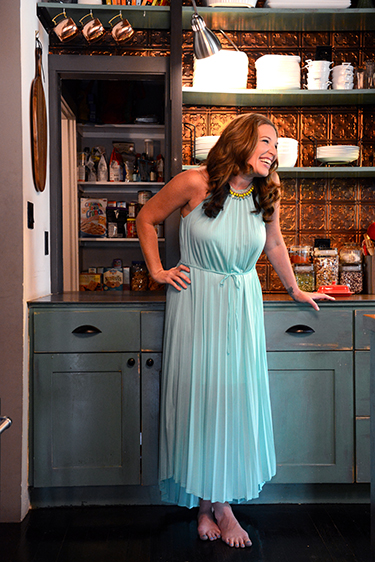 f I had to strip everything away from me, what I would hang onto the tightest would be my relationships. I want us to live and love well. I am hoping to lead a tribe that does more healing and less hurting. I consider that to be my job. We need to put aside our fears, let ourselves off the hook, stop devoting time and energy to an idea of success tied to work, accomplishment and possessions, and be free to devote time to relationship[s]. By this, I mean relationships with people and the world we all live in, whether that is family, friends, our community or the world at large. I lead thousands of people online in the hope that they can lay down criticism and unrealistic expectations, and commit to each other in a funny, genuine and truthful way.
f I had to strip everything away from me, what I would hang onto the tightest would be my relationships. I want us to live and love well. I am hoping to lead a tribe that does more healing and less hurting. I consider that to be my job. We need to put aside our fears, let ourselves off the hook, stop devoting time and energy to an idea of success tied to work, accomplishment and possessions, and be free to devote time to relationship[s]. By this, I mean relationships with people and the world we all live in, whether that is family, friends, our community or the world at large. I lead thousands of people online in the hope that they can lay down criticism and unrealistic expectations, and commit to each other in a funny, genuine and truthful way.
CAREER? I NEVER THINK OF MYSELF AS A CAREER WOMAN FIRST. I ALWAYS THINK OF MYSELF AS A HUMAN BEING FIRST.
My goal professionally is that everything I do is a spillover of who I really am and not who the marketing team creates. If I hear one thing over and over from women, it is how deeply and chronically they live in guilt because we feel like we are not doing a good job. We have been sold a bill of goods, unattainable standards and impossible expectations. We try to do it all and think we aren’t doing anything well enough. We are not enough as a wife, a mother, a friend, on the job. It is exhausting. The online culture has made it worse. It is unprecedented the amount of information that is available to us. On a daily basis, who can measure up, let alone keep up? We are setting ourselves up for frustration, depression and failure. Pinterest is just a roll call of awesomeness. I say, “Unload the beam.” I started the book with that essay on purpose. Not everything belongs on the beam. Some things are not our strength. There is not room for everything. There is no shame in that. Even when women make good choices and have healthy boundaries, they still have residual guilt. It is not healthy and until we quit buying into the standard, we are going to be its victims. My hope is that we can pull out of the entire paradigm. We must reject it altogether. This parallel universe is not true, it is not real and nobody is doing all of these things. We need to be less awesome and become wiser. I love the quote from Anna Quindlen that begins, “Don’t ever confuse your life and your work. The second is only a part of the first.” What she says is true. You are the only person who has sole custody of your life.
RUN YOUR RACE. I AM INSPIRED BY PEOPLE DOING WHAT THEY DO BEST AND I DON’T LIKE IT WHEN PEOPLE MINIMIZE THEIR GIFTS.
Play to your strengths and learn to say no with conviction to things you are not good at. I try to have a clear understanding of things that don’t fit into my life at certain times. For example, I am not a classroom mom. I have been a parent for 17 years and have never volunteered for the job. Also, I hate to shop and outsource taking my daughter, who loves to shop, to the young people in our church community who also love to shop. I fund the excursions and lunch, and everyone is happy; win-win. When it is back-to-school time, if we can’t buy it on Amazon Prime, it doesn’t get bought and inevitably, despite all of my good intentions, we end up having a lot of meltdowns during the first week of school as everyone gets back into the routine.
On paper, I am a pastor’s wife and a pastor’s daughter, and you might think that would dictate a list of how I should operate, but that is not the case. I have flaws and blow about every stereotype, but I learned to stick to what I am good at, to know what sets my heart pounding, to see where [I can] make the biggest difference and where I am in my lane, running my own race. I know for a fact that everyone has something unique to contribute. I love to encourage victories and encourage risk. Just go for it! If the worst thing that happens is that we fail, then we can always start again. Why does fear of failure stop us so easily? I hope my story sets women free from the idea that Christian women aren’t doubtful or flawed. We all are flawed and doubtful at times, but identifying your gifts and embracing our talents is how we can be of the most service and feel the most alive.
I LOVE WRITING. WORDS MATTER. WORDS ACTUALLY CHANGE LIVES, MOVE PEOPLE, SUSTAIN US.
They take us to 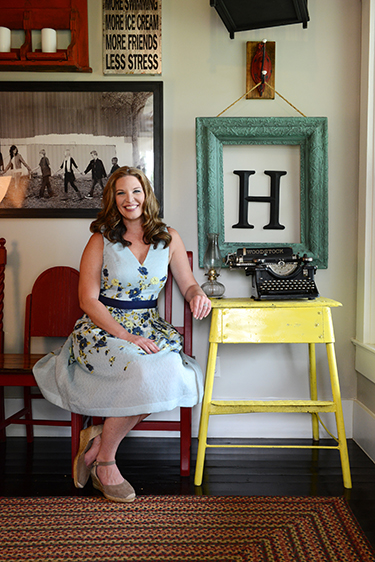 another world when we need to go and bring us home when we need to come back. Whatever you need, words can deliver: laughter, solidarity, encouragement, thrill, courage, silliness, spirit.
another world when we need to go and bring us home when we need to come back. Whatever you need, words can deliver: laughter, solidarity, encouragement, thrill, courage, silliness, spirit.
I have been a reader and writer my entire life. It never occurred to me that I could make a living as a writer. I thought I had to get a sensible job and pay the bills, and so I was almost 30 before I decided to make a go of it as a career. Words have affected me more than anything I can think of. Books have moved me, challenged me, inspired me, changed me.
I know that words matter and there is always room for more. Young writers always tell me that they love the written word and want to write but don’t know how to break in. I tell them there is always room at the table. We will never have enough. There is never a quota, never a scarcity of wisdom or good stories or important words, so I say pull up a chair at the table. There is room for you, your story and your words. To again quote Anna Quindlen, “Only you can tell your story and only you know your story.”
If you want to be a writer, there is no magic bullet. You can’t skip the important steps and go straight to the top. Writing is hard work and you have to learn your craft. You have to develop an audience and develop trust and reciprocity with your readers. For the Love is my 11th book, but people know me from the last three books. I was in the trenches when no one was reading me, and I wouldn’t trade one day of it. I learned how to be a writer and to take criticism. I learned how to work hard and all about rejection. Those lessons are invaluable to me today. I marvel that I get to make a living with words. I hope to use them for beauty and Jesus and life. I hope to make them count.
I THINK THERE IS NO OTHER WAY TO LIVE THAN TO HAVE RADICAL GRACE FOR ONE AN OTHER.
When I see pockets of community that live in grace and respect for each other, there is magic. That is my crazy dream, that we can develop that in our own spaces, and it is really hard work. [It] sounds nice but is really labor-intensive to develop a community that is safe and transparent and inclusive. I crave a world of justice.
My definition of grace deepened and enriched when I realized how undeserving I was of it. I know my own heart. I make mistakes. I can be rotten. I fail and I don’t have a perfect marriage or family. Once I started understanding my own need for gracious community and a gracious God, I decided that if I was going to love grace for others, then I better love it for myself too. I feel like it is time to let each other off the hook in some ways. In the ordinary details of life, I think we have to be quicker to say, “I forgive you. It’s OK. You are not failing,” rather than to condemn, criticize and isolate.
Speaking personally, when I am being unkind toward others and when I am struggling to be gracious, forgiving, understanding or compassionate, [it]is usually because I am in a really bad place myself. It is when I am unhappy with something in the interior of me or I am privately struggling with something I am too embarrassed to discuss with other people or even admit, times when I am in a cycle of self-condemnation. So when I am really ugly to others, I find that I am being ugly to myself. If we can develop a kinder inner voice, we automatically develop a kinder outer voice. There is high correlation between the two. When I am healthy and I have developed a high level of care for my own soul, I am able to be so much kinder to others.
MY FAITHFUL LIFE HAS CHANGED FROM A LIFE OF A LOT OF MORALITY RULES TO SIMPLY TRYING TO LOVE PEOPLE THE BEST I CAN.
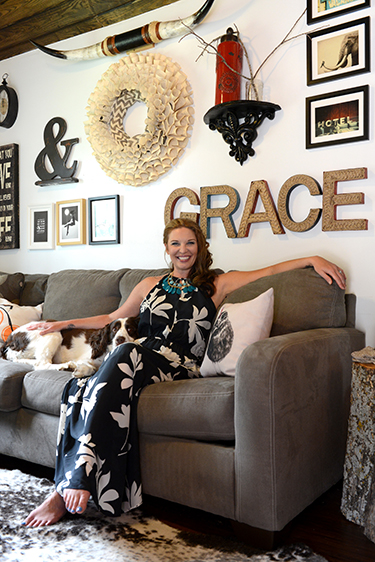 I feel called within faith to love God and love people in a million different ways. Love is all that matters. I grew up in a South, conservative, traditional church environment. Until I was in my 20s, [I had] no concept of anything other than that life. It was very homogenous. My father was a Southern Baptist minister my whole life. There was zero diversity, not racially, not socio-economically, not spiritually. It was a very narrow worldview. Once I hit my 20s, we began to deeply connect to the international community and it began to change my worldview. The exposure was really kind of shocking and really transformative. I looked at the entire world, different faiths and many spiritual practices, and found that holiness has a lot of faces. Jesus said to love God and love people, and I think if you can do that, that will be a faithful life.
I feel called within faith to love God and love people in a million different ways. Love is all that matters. I grew up in a South, conservative, traditional church environment. Until I was in my 20s, [I had] no concept of anything other than that life. It was very homogenous. My father was a Southern Baptist minister my whole life. There was zero diversity, not racially, not socio-economically, not spiritually. It was a very narrow worldview. Once I hit my 20s, we began to deeply connect to the international community and it began to change my worldview. The exposure was really kind of shocking and really transformative. I looked at the entire world, different faiths and many spiritual practices, and found that holiness has a lot of faces. Jesus said to love God and love people, and I think if you can do that, that will be a faithful life.
I have learned to listen to the voice of the other, and I approach every conversation with a different lens. First, I think, “Which one of us has the least power?” and I will listen to them first. ask, “Who is the most maligned, the most invisible, the least heard? Who has the least power?” and listen to them first, listen with respect, deference and compassion. Being a good listener is a real community builder. If we are not always seeking to be heard but also to listen, it changes the conversation and barriers come down. Enter into a space as two human beings. … Come to the table as friends without an agenda.
My ideas on mission outreach have changed radically as well. I have seen the work do so much damage to whole communities and to people’s hearts, and so we are so selective on who we will partner with on international endeavors. If we are approaching an impoverished community as the do-it-all, fix-it-all, know-it-all have-and-have-nots or the better-thans, then we do harm, even if it is unintentional. The people we are serving know their community and are very resourceful and smart. We do not know what’s best for them in their community. Anything that sets up a person to be pitied is a red flag. We must challenge the notion that we know best or are going to fix another community.
Generally, I miss an enormous part of what I am here to do if I just live for me and mine. I have done that before and it leaves me feeling empty, off task, incomplete and unfulfilled. Our family has been exposed to so many different kinds of people and struggles, and we will never be the same for it, so we believe that part of our life’s work is to mobilize people to be generous, to care deeply about justice. I am not comfortable with a world where only a few of us are healthy and safe and so many are hungry, poor and in danger. We throw our weight with initiatives that bridge the gap, ones that say if we care about our family, we care also about yours. If I wouldn’t allow these conditions for my own children, then how dare I allow them for yours? If it isn’t true for a poor single mom in Haiti, then it isn’t true for me.
In a lot of faith-based communities, we tilt our theology to make sure that it benefits us. In other words, it is “our blessings.” We cast God as the God who is showering us, so I have that line, “What we are saying is that God’s love and care is related to wealth or comfort or an easy life because we are blessed.” That is not my God. I am very careful not to craft an American God, but to try to understand God in the scope of the entire planet and need for basic human care for all of us.
ULTIMATE EMPOWERMENT LIES IN TELLING THE TRUTH.
Tell the truth and be set free. [It’s as] simple as that yet it is one of the hardest things to do. I can deliver that message with confidence because I have seen it work. For me, it is not just an idealistic lens through which to view life. I will live intentionally with those values, and it is so powerful and truthful and healing that I have personally seen it work and I can never go back. It is funny because I would liken it to labor: At the end, you don’t want to do the very thing you have to do to deliver the baby— most painful part—but it is worth it. That is what it is like for me to live vulnerably. It is the hardest part, but that is how you get to the light. The very thing you don’t want to do is the very thing you should do to push through to true community. It is internal freedom.
One thing I have learned is that in order to live with truth, I have to accept that I am not in charge of outcomes. I am not in charge of how you think about me. I cannot control your response to me. I can’t control the narrative. As long as I know those things are beyond my control, I am free to be my real and true self. What you do with that is up to you.
I live the most truthfully with people who have earned my trust, and I know that they love me and I love them and we are there for each other, and so, in that community, I am entirely free. It is wise to be more private and guarded at large. Not everybody deserves to have the fullness of your truth. Though, in real community, it is the only way to live.
A LIFE WELL LIVED
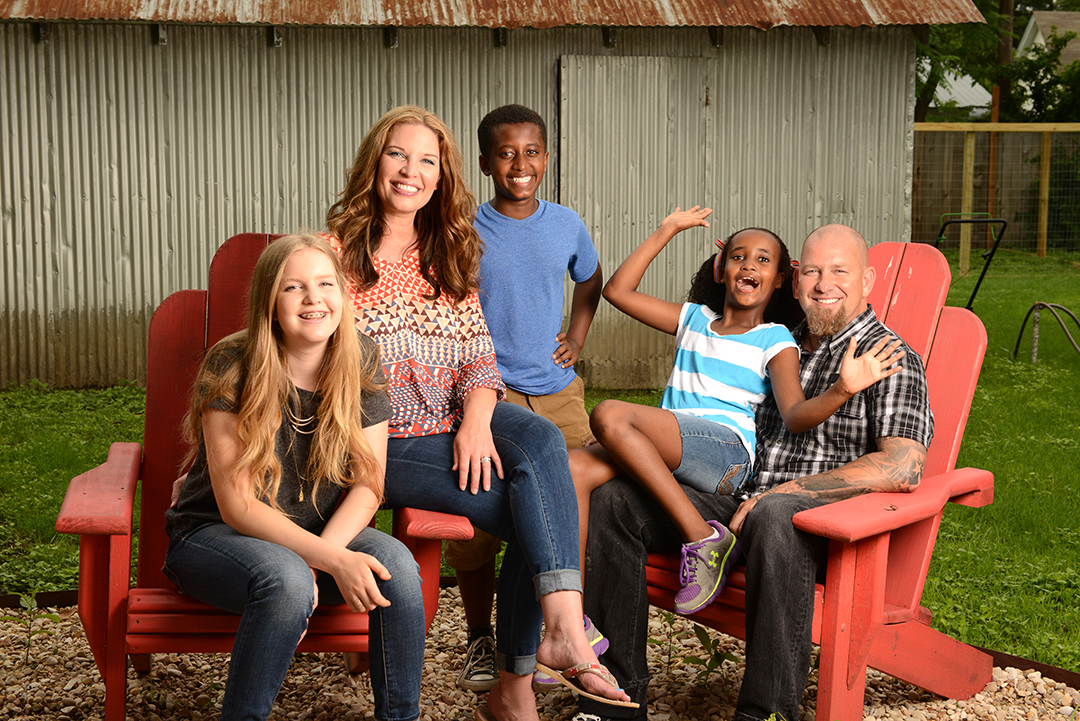 If I loved well, I will consider my life a success. That is my dad’s legacy. He loved people well. Everyone thinks they are my dad’s favorite because that is how he makes you feel, like you are the most interesting, smartest and best person he has ever talked to. I want people to say, “Jen loved me. She loved my people. She was good to me and kind.” That is my best legacy. Kindness matters. I honestly believe deep in my core that loving people well matters. I don’t think it is a soft concept or just some intangible life goal. I think it changes people’s lives and I think it gives them courage and strength. It creates community and it is healing, and so, to me, it is the best thing I can offer the world. That is what changes people. If people say that I loved them well, I will sincerely consider my life well lived.
If I loved well, I will consider my life a success. That is my dad’s legacy. He loved people well. Everyone thinks they are my dad’s favorite because that is how he makes you feel, like you are the most interesting, smartest and best person he has ever talked to. I want people to say, “Jen loved me. She loved my people. She was good to me and kind.” That is my best legacy. Kindness matters. I honestly believe deep in my core that loving people well matters. I don’t think it is a soft concept or just some intangible life goal. I think it changes people’s lives and I think it gives them courage and strength. It creates community and it is healing, and so, to me, it is the best thing I can offer the world. That is what changes people. If people say that I loved them well, I will sincerely consider my life well lived.
And with that, our interview ended and I realized that I had never asked Hatmaker to define grace or why it is worth fighting for. I also realized that I didn’t have to ask the question, for I had spent time in the company of a woman who embraced her flaws, often laughed at herself and the world, had tangible insight and actionable advice. By loving the other in me and in all people, Jen Hatmaker had surrounded me with her amazing grace.
THE HATMAKERS TOGETHER
Jen on Brandon: “I am so thankful that I married a strong man. It would take a valiant heart to handle me, and for 21 years, he has done a brilliant job.”
Brandon on Jen: “I fell in love with her the moment I saw her, and then when it got better the more I got to know her, at that point, I wanted to marry her. I always say, ‘Don’t find the person you can live with for the rest of your life; find the person you can’t live without.’ ”
Jen on family: “I come from funny people: funny parents and funny siblings. I came from an environment that was loud, silly, obnoxious and really tight, and that is how I operate. We don’t live in an after-school special. My life is messy and jumbled, but I always tell parents, ‘If you are operating out of love, you are doing a better job than you think you are doing. Don’t be so hard on yourself.’ ”
GOOD READS
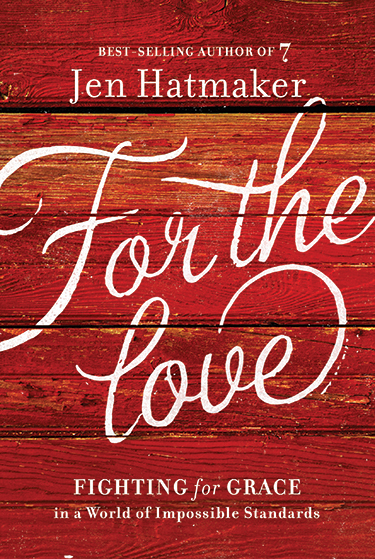 For the Love: Fighting for Grace in a World of Impossible Standards
For the Love: Fighting for Grace in a World of Impossible Standards
This book is filled with Jen Hatmaker’s musings on living a purposeful life filled with grace and love.
“Our tribe does not need to be ruled by scarcity; there is enough for every woman to live beautifully,” Hatmaker says
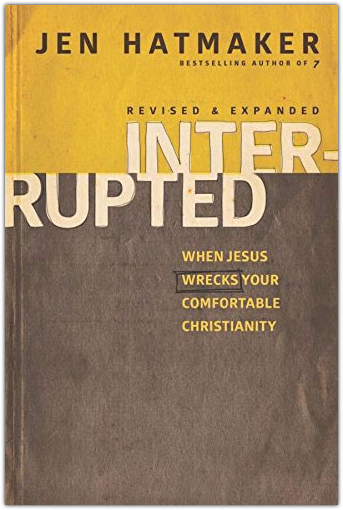 Interrupted: When Jesus Wrecks Your Comfortable Christianity
Interrupted: When Jesus Wrecks Your Comfortable Christianity
Hatmaker was living a comfortable life, secure in her role as a pastor’s wife, mother and author when—bam—she asked some tough questions and God led her in a new direction. This is the story of that journey. If you are ready to interrupt your life, this is the book for you.
“Every time someone asks me which of my books they should buy, I reply, ‘If you buy just one book of mine, buy Interrupted,’ ” Hatmaker says.
 7: An Experimental Mutiny Against Excess
7: An Experimental Mutiny Against Excess
This book covers seven months, seven areas of excess (food, clothing, spending, media, possessions, waste and stress) and seven simple choices to eliminate materialism, greed and overindulgence. It’s an eye-opening look at how to gain true freedom through simplicity and gratitude.
“How can I be socially responsible if unaware that I reside in the top percentage of wealth in the world?” Hatmaker asks. “What does it communicate when half the global population lives on less than $2 a day and we can’t manage a fulfilling life on 25,000 times that amount?”
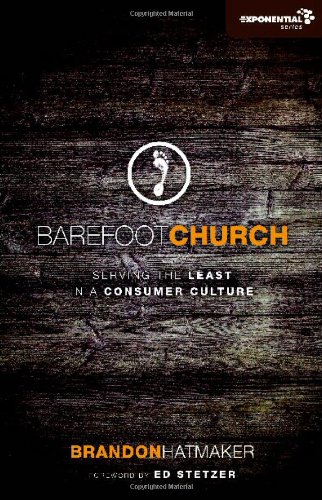 Barefoot Church: Serving the Least in a Consumer Culture
Barefoot Church: Serving the Least in a Consumer Culture
This book, written by Jen Hatmaker’s husband, includes practical and authentic advice for creating a modern-day, mission-driven church community that allows its members to have a sense of renewal and personal transformation as they set out to serve the least among us.
“My hope is that God would open our eyes more and more to the needs of our community,” Brandon Hatmaker says, “and that we would see it as the church’s responsibility to lead the charge.”
THE TAO OF JEN
Great takeaways
“If your inner monologue is critical and endlessly degrading, it is time to move back to grace.”
“Empathizing is the key to a wholehearted life. I pray for your kindness more than your success because the latter without the former is a tragedy.”
“We have no obligation to endure or enable toxic relationships. You are not responsible for the spiritual health of everyone around you. Watching someone create chaos without accountability is not noble. You have a limited amount of time and energy, and must steward it well.”
“We don’t live in a show home and we never will. I was interested in creating a space for people to belong. Home should be a comfortable, safe place where you can restore what [the]world steals. I wanted to create a home that would feel so inviting and welcoming that people would never want to leave.”
“Cooking is a way for me to be creative. I love being in the kitchen. It is part of my day I look forward to. I pour myself a glass of wine, turn on some music, chop some onions and garlic, and get going. It makes me so happy. Cooking can be a real joy. It doesn’t have to be hard or complicated or fancy, just nourishing and restorative. That hour at the end of my workday is so lovely with the smells that I love and the music and the kids coming in and out. I never get tired of it.”

